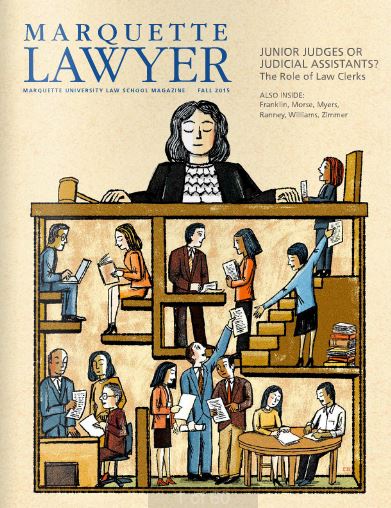Judge Maxine White: Aiming to Provide Well-Run, Fair Courts, not Oprah Episodes
What can you expect from the courts in Milwaukee County?
A system that does everything well, from the ultimate decisions down to the way people are received at the security points at the entrances to buildings.
A system that is well run and staffed by well-trained people in every role.
A system where people feel safe in the courthouse and people, especially crime victims, are treated with respect.
A system that handles cases of all kinds in a fair way, providing a fair forum without politics .
A system that does all it can to be sure civil cases as well as criminal cases, small claims as well as high-profile major crimes, are handled effectively, professionally, and as promptly as possible.
Those are among the goals set out Wednesday by Judge Maxine White, who recently became chief judge of the first judicial district of Wisconsin (which is to say, Milwaukee County). She spoke at an “On the Issues with Mike Gousha” program at Marquette Law School.

